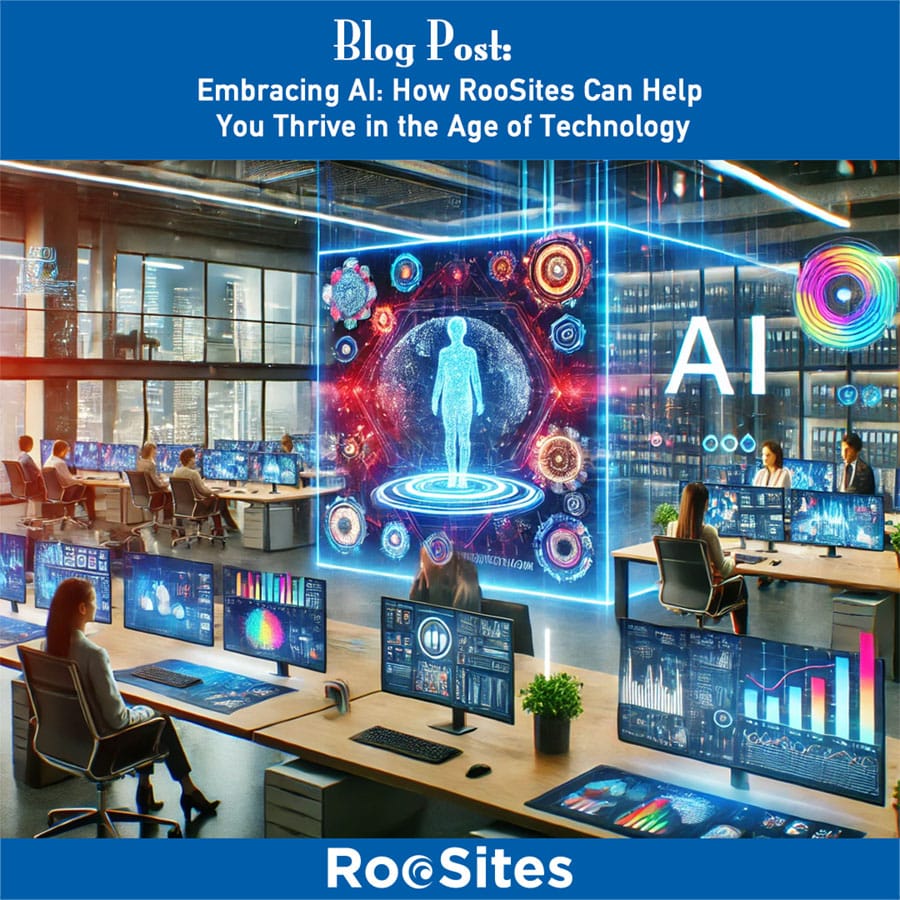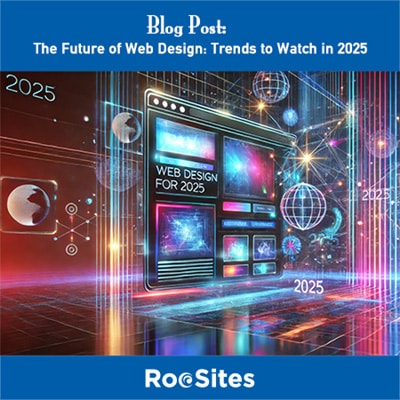
The fear of AI often stems from a lack of understanding. Headlines about automation replacing jobs or data privacy concerns can create apprehension. But the truth is, Artificial Intelligence isn’t here to replace humans—it’s here to empower us. From streamlining operations to uncovering valuable insights, AI has the potential to enhance productivity and creativity when used responsibly.
At RooSites, we specialize in web design, development, and management. But more than that, we understand how technology—including Artificial Intelligence—can revolutionize your online presence. Here’s how we can help you embrace AI effectively:
Artificial Intelligence isn’t a threat; it’s an opportunity. The businesses that embrace it will find themselves more agile, efficient, and innovative. RooSites is here to ensure that your business transitions into the AI era smoothly and successfully.
Let us help you harness the power of Artificial Intelligence to elevate your business. Whether you need an AI-integrated website, assistance with content creation, or guidance in using AI tools, RooSites has the expertise to support you.
Ready to take the leap? Contact RooSites today, and let’s embrace the future together!

Artificial Intelligence (AI) will drive hyper-personalized user experiences. Websites will adapt in real-time to user preferences, browsing history, and behavior, offering content tailored to individual needs.
With the rise of voice search and smart assistants, web design will increasingly focus on voice-first interfaces. Websites will feature intuitive navigation optimized for spoken commands.
3D design is set to become a mainstream trend, with immersive elements providing a more engaging and interactive experience. Expect to see 3D animations, product visualizations, and dynamic effects.
As sustainability becomes a priority, websites will focus on eco-friendly hosting solutions and optimized designs to reduce energy consumption, appealing to environmentally conscious users.
Micro-interactions, such as subtle animations and responsive feedback, will play a crucial role in keeping users engaged and making navigation more intuitive.
AR and VR will enhance user experiences, particularly for e-commerce, real estate, and education. Interactive try-ons, virtual tours, and immersive learning will become standard.
Inclusivity will be at the forefront, with enhanced accessibility features such as voice navigation, screen reader compatibility, and high-contrast modes.
The democratization of web design continues with no-code and low-code platforms, empowering more people to build professional-quality websites without extensive technical knowledge.
Breaking away from traditional grid structures, asymmetrical designs will offer visually compelling and creative layouts that capture attention.
Websites will leverage analytics and user data more effectively to optimize layouts, navigation, and content, ensuring every design choice enhances the user experience.
Web design in 2025 will be an exciting blend of technology, creativity, and user-centric innovation. By staying ahead of these trends, businesses can ensure their online presence remains relevant and engaging. If you need help with designing, developing or managing your website, please contact us and we would be happy to help you and your business!
Related Content
AI and Personalization: A Game-Changer for Small Business Websites